Mental health is one of your greatest assets. It helps you focus on work, overcome obstacles, get along with the people around you and get well and stay well. Our mental health is in constant flux and ebbs and flows on a daily basis, many things can impact this including our physical health. The connection between our physical body and our mental health is important and may be something worth exploring when thinking about staying mentally healthy. Learn more about whole health and what you can do to improve your overall wellness. We encounter mental health every day. Whether you are dealing with stress, a divorce, or a natural disaster, it’s important to learn what’s affecting your health. Taking a screening is one of the easiest ways to determine whether you are experiencing symptoms of a mental health or substance use condition.
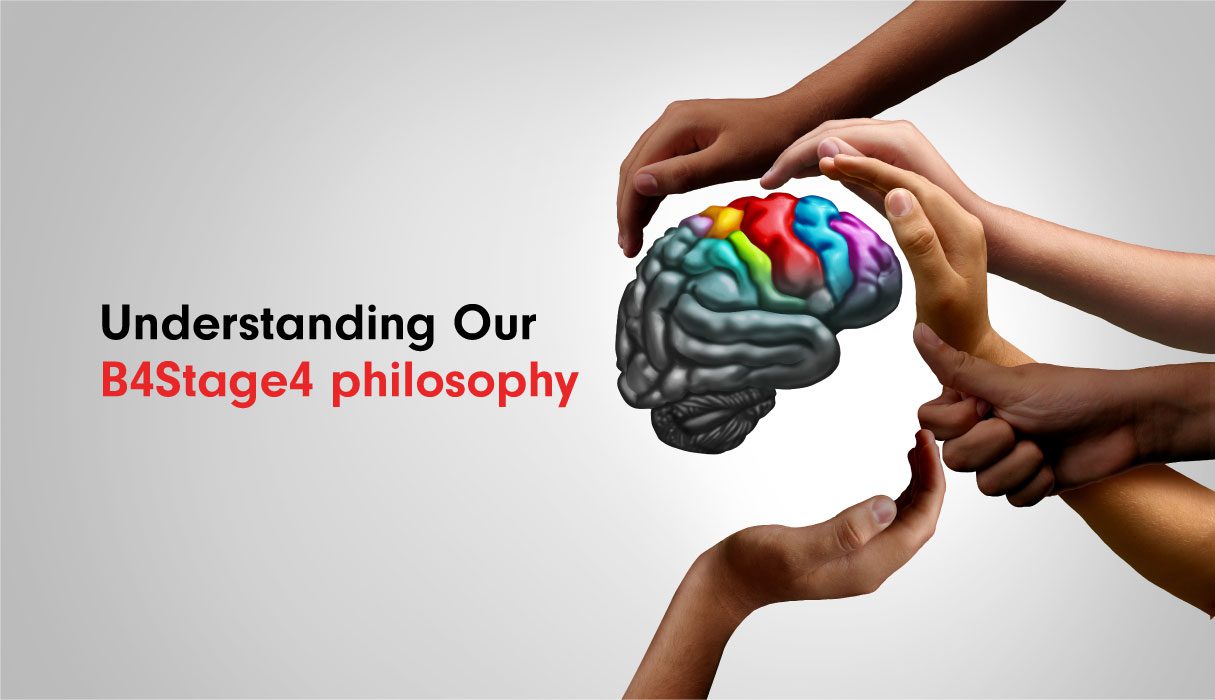
When we think about cancer, heart disease, or diabetes, we don’t wait years to treat them. We start way before Stage 4. We begin with prevention. And when people are in the first stage of those diseases, and have a persistent cough, high blood pressure, or high blood sugar, we try immediately to reverse these symptoms.
This is what we should be doing when people have serious mental illnesses, too. When they first begin to experience symptoms such as loss of sleep, feeling tired for no reason, feeling low, feeling anxious, or hearing voices, we should act.
These early symptoms might not ever become serious. Like a cough, they often go away on their own, and are nothing to fear. But when they do not go away, it typically takes ten years from the time they first appear until someone gets a correct diagnosis and proper treatment.
This means that by ignoring them, we lose ten years in which we could intervene in order to change people’s lives for the better. During most of these years most people still have supports that allow them to succeed – home, family, friends, school, and work. So people can often recover quickly, and live full and productive lives.
Even when we don’t intervene right away, and serious mental illnesses get worse and disrupt people’s lives, we can act effectively. We can offer people choices and supports to help them recover. These include clinical services, drugs, peer supports, counseling, family supports, and other therapies that also help them manage their thoughts and emotions. These all help keep people connected to their families and their community. Intervening as early as possible preserves education, employment, social supports, housing – and brain power! It also costs less than the all-too-common revolving door of incarceration, hospitalization, and homelessness.

When we think about cancer, heart disease, or diabetes, we don’t wait years to treat them.
We start before Stage 4—we begin with prevention. When people are in the first stage of those diseases and are beginning to show signs or symptoms like a persistent cough, high blood pressure, or high blood sugar, we try immediately to reverse these symptoms. We don’t ignore them. In fact, we develop a plan of action to reverse and sometimes stop the progression of the disease. So why don’t we do the same for individuals who are dealing with potentially serious mental illness?
1 in 5 American adults will have a diagnosable mental health condition in any given year.(1)
50 percent of Americans will meet the criteria for a diagnosable mental health condition sometime
in their life, and half of those people will develop conditions by the age of 14.(2)
Stages Of Mental Health Conditions
Stage 1
Mild Symptoms and Warning Signs
At Stage 1, a person begins to show symptoms of a mental health condition, but is still able to maintain the ability to function at home, work or school—although perhaps not as easily as before they started to show symptoms. Often there is a sense that something is “not right.”
Stage 2
Symptoms Increase in Frequency and Severity and Interfere with Life Activities and Roles
At Stage 2, it usually becomes obvious that something is wrong. A person’s symptoms may become stronger and last longer or new symptoms may start appearing on top of existing ones, creating something of a snowball effect. Performance at work or school will become more difficult, and a person may have trouble keeping up with family duties, social obligations or personal responsibilities.
Stage 3
Symptoms Worsen with Relapsing and Recurring Episodes Accompanied by Serious Disruption in Life Activities and Roles
At Stage 3, symptoms have continued to increase in severity, and many symptoms are often taking place at the same time. A person may feel as though they are losing control of their life and the ability to fill their roles at home, work or school.
Stage 4
Symptoms are Persistent and Severe and Have Jeopardized One’s Life
By Stage 4, the combination of extreme, prolonged and persistent symptoms and impairment often results in development of other health conditions and has the potential to turn into a crisis event like unemployment, hospitalization, homelessness or even incarceration. In the worst cases, untreated mental illnesses can lead to loss of life an average of 25 years early.
Catching mental health conditions early is known as Early Identification and Intervention. However, many times people may not realize that their symptoms are being caused by a mental health condition or feel ashamed to pursue help because of the stigma associated with mental illness. It’s up to all of us to know the signs and take action so that mental illnesses can be caught early and treated, and we can live up to our full potential. Even though mental illnesses may require intensive, long-term treatment and a lot of hard work at the later stages, people can and do recover and reclaim their lives.
One way to see if you may be experiencing symptoms of a mental health condition is to take a screening. Visit www.mhascreening.org to take a quick, confidential screening for a variety of mental health conditions including anxiety, depression, mood disorders or Post-Traumatic Stress Disorder. Use your screening results to start a conversation with your primary care provider, or a trusted friend or family member and begin to plan a course of action for addressing your mental health.
Remember, mental health conditions are not only common, they are treatable. There is a wide variety of treatment options for mental illnesses ranging from talk therapy to medication to peer support, and it may take some time for a person to find the right treatment or combination of treatments that works best for them. But when they do, the results can be truly amazing and life changing.

When you or someone close to you starts to experience the early warning signs of mental illness, knowing what the risk factors and symptoms are will help to catch them early.
Often times, family and friends are the first to support a person through these early stages. Like other health conditions, we need to address the symptoms early, identify the underlying illness, and plan an appropriate course of action on a path towards overall health.
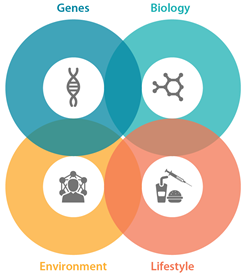
17-28% of risk for mental illnesses can be accounted for by variations in common genes.
Much stronger links were found in twin and family studies. Estimates for total heritability, or how much a disease is tied to genetics, are(1):
In one study, head injury between the ages of 11-15 was the strongest predictor for development of schizophrenia, depression, and bipolar disorder.(2)
Brain changes like building a “tolerance” or reward response to stress, or abnormalities in the prefrontal and frontal cortex, and irregularities in the function of the neurotransmitter glutamate are also risk factors for mental illness and substance use.(4)
People who are exposed to adverse childhood events including abuse, neglect, divorce, witnessing domestic violence and having parents who have substance use issues, mental illnesses or are in jail are(3):
Substance use can increase chances of developing a mental illness and having a mental illness can increase risk of using substances.
People with any mental illness are(5):
Having a combination of symptoms (not just one symptom) indicates that someone might be showing signs of a mental health condition. Be aware of these symptoms when they last longer than a few weeks and start to affect school, work, relationships, or your everyday activities:
Problems With Concentration, Memory, Or Ability To Think Clearly
Changes In Eating Such As Loss Of Appetite Or Overeating
Not Being Able To Complete School Or Work Tasks
Feeling Overly Worried
Feeling Overly Worried
Feeling Sad, Empty, Hopeless, Or Worthless
Sensitivity To Sounds, Sight, Smell, Or Touch
Irritability And Restlessness
Loss Of Interest In Activities That Are Normally Enjoyable, Withdrawal From Others, Or Disconnection
Feeling Like Your Brain Is Playing Tricks On You. Hearing Knocking, Scratching Sounds, Voices, Or Your Name Being Called. Seeing Things That Other People Do Not See, Like Shadows, Changes In Light, Figures.
Changes In Energy Level And Sleep Patterns. Often Someone Will Sleep During The Day And Be Up At Night.

Many people do not seek treatment in the early stages of mental illnesses because they don’t recognize the symptoms.
84% of the time between first symptoms and first treatment is spent not recognizing the symptoms of mental illness.
16% of the time is spent getting help(1).
The delays in treatment for mental illnesses are longer than for many other health conditions(2-4). The delay in treatment for some mental illnesses are:
Screening
Screening can help catch mental health problems early—B4Stage4. Screening is an anonymous, free and private way to learn about your mental health and if you are showing warning signs of a mental illness.
A screening only takes a few minutes, and after you are finished you will be given information about the next steps you should take based on the results. A screening is not a diagnosis, but it can be a helpful tool for starting a conversation with your doctor or a loved one about your mental health.
GPI Screening
GPI Screening uses proven tools to check for symptoms of depression, anxiety, mood disorders and Post-Traumatic Stress Disorder.
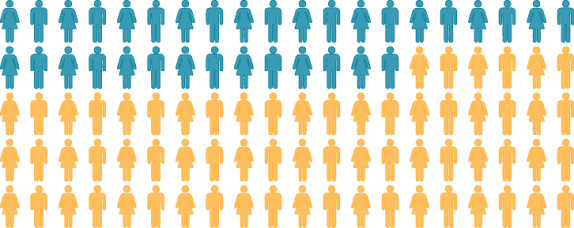
Screening Effectiveness
Getting screened increases the chances of getting treatment.
When positive screening results were given during a primary care visit, doctors were over 3 times more likely to recognize the symptoms of mental illness and to plan to follow up with the patient.
Treatment following screening has been shown to reduce symptoms of mental illness, and the positive effects of treatment are still seen a year later (5-7).
Early Intervention Is Cost Effective
The earlier that mental health problems are caught and treated, the less it costs and the better the results.
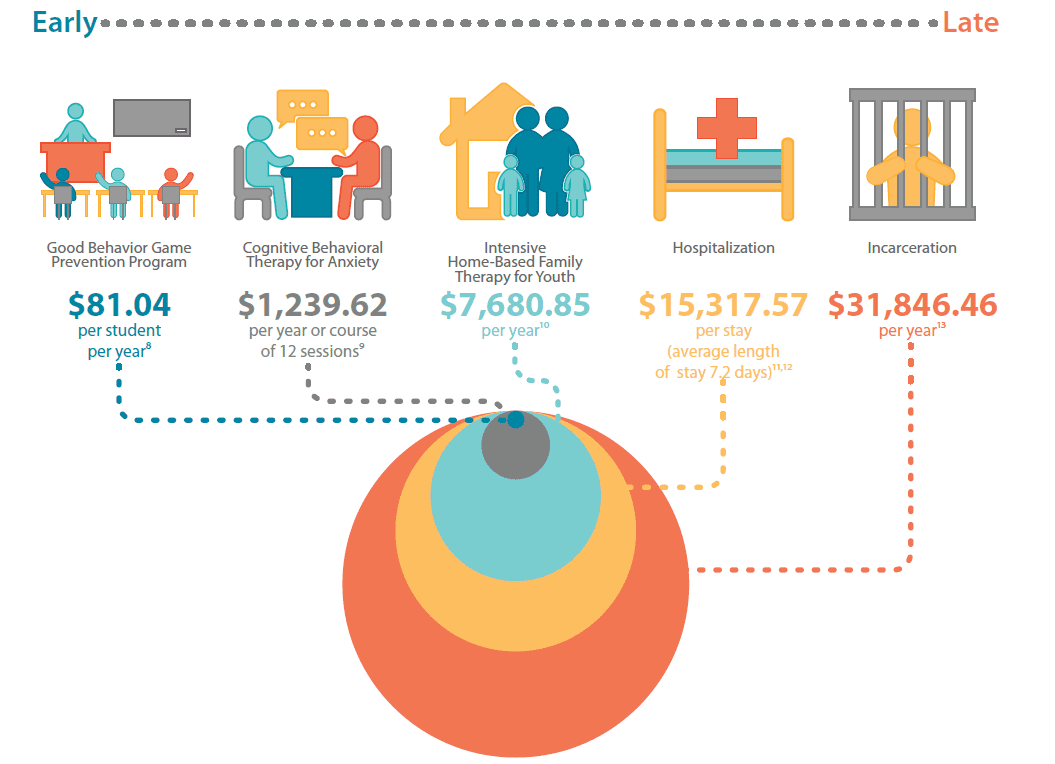

You’ve decided to get help—that itself is a big step—now it’s important that you understand options for treatment. You may end up trying a few different options or a combination of treatments, not just one.
That’s okay—it is all about what works best for you. This list doesn’t include everything, and there are many other treatments and providers. Make sure you tell your treatment team about all of the options you’re using.
Common Treatment Types

Therapy
There are many approaches to therapy for individuals and groups, including cognitive behavioral therapy
Provided by: Psychologists, Licensed Clinical Social Workers (LCSWs), Pastoral Counselors, other specialists like Marriage and Family Therapists, some Psychiatrists, Inpatient Care, Hospitals

Medication
Medications aren’t cures, but they can treat symptoms. Every medication has benefits, risks, and side effects. Keep in mind that it may take 6-8 weeks for a medication to have its full effect.
Provided by: Psychiatrists, Other Medical Doctors, Nurse Practitioners and Physician’s Assistants (under supervision of a doctor), Inpatient Facilities, Hospitals. Some psychologists with special training may also be able to write prescriptions.

Peer Support
While they aren’t counselors, peers can give valuable insight on how to recover from mental illnesses because they have experience. Peers provide hope, education and advocacy.
Provided by: Certified Peer Specialists, Peer Supporters, Support Groups, Online Support Communities
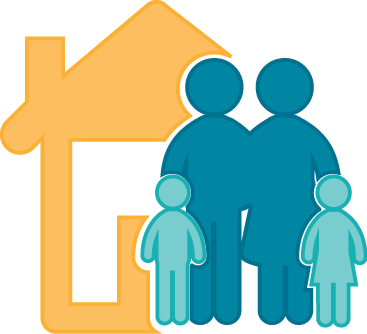
Community-Based Services
Community-based mental health services are team approaches that help you and your family work on all aspects of life and recovery. Common community services include: evaluations of your mental health and role in the community, education to empower personal recovery, individual and group therapy, case management, and supported education and employment. These services are provided through small or large programs and while some work might be completed in an office, most of the treatment is provided at your home and in your natural environment.
Provided by: Local MHAs, Community Mental Health Treatment organizations and programs. Check out the SAMHSA Treatment Locator at findtreatment.samhsa.gov

Complementary And Alternative Medicine
Many Americans, nearly 40 percent, use health care approaches developed outside of mainstream Western, or conventional, medicine for specific conditions or overall well-being. The most commonly used natural product among adults in the past 30 days was fish oil/omega 3s (reported by 37.4 percent of all adults who said they used natural products).(1)
Provided by: Doctors, Pharmacies, Internet (Caution advised—some natural supplements can have serious interactions with medications. Always discuss Complementary and Alternative treatments with a doctor.)

Self-Care
Self-care can include online, self-managed programs like Beating the Blues, which can improve the symptoms of anxiety and depression.(2) It can also include things like exercise, which can have a moderate effect on depression.(3)
Provided by: You
Even If You Have Insurance, Not All Providers Will Accept It.
There are many reasons that this happens, including low reimbursement rates and large amounts of paperwork. However, you may be able to get reimbursed for some of your care—ask your insurance company about out-of-network care and their reimbursement process.
It’s Going To Take A While To See Someone.
Nationally, there’s only 1 mental health provider for 790 adults. With 1 in 5 adults experiencing a mental health condition in a given year, a lot of those providers have their hands full.(4) This is a network problem that groups like Mental Health America are trying to change at national, state, and local levels.
Some Areas Don’t Have The Care You Need, Even If You Can Pay For It.
This can happen because of your location (if you live in a rural area, you may have to travel a long distance to find a therapist) or because providers in your area don’t offer the supports you need (like community-based services). Thirty to forty percent of children and adults report that they couldn’t get the mental health treatment they needed because of cost, inability to access treatment, or inadequate insurance.(4) This is an access to care problem that advocacy groups like Mental Health America are working on. Want to help? Find your local MHA Affiliate and see how you can get involved.
It’s Going To Cost Money.
For example, individuals nationwide spent an average of 10 percent of their family’s annual income out of pocket for mental health/substance abuse treatment.(5) However, the cost of waiting can be worse. If you need help paying for treatment, visit Paying For Care.
Your First Provider May Not Be “The One”.
Choosing a mental health provider can be kind of like dating. Sometimes, you’re just not compatible. You may have to change providers before you feel comfortable. While it can feel like a hassle, it’s worth it to find the right fit.
Some People Are Going To Be Critical Or Doubtful.
More than half of people believe that others are caring and sympathetic to individuals with mental illness, however that may not always be the case.(6) You may encounter some naysayers, but there are also people who will support you and want you to get better. If you don’t have them in your life, you can find them in support groups or online communities.


If any of our projects, articles, or capabilities interest you, please don’t hesitate to get in touch with a member of our team.